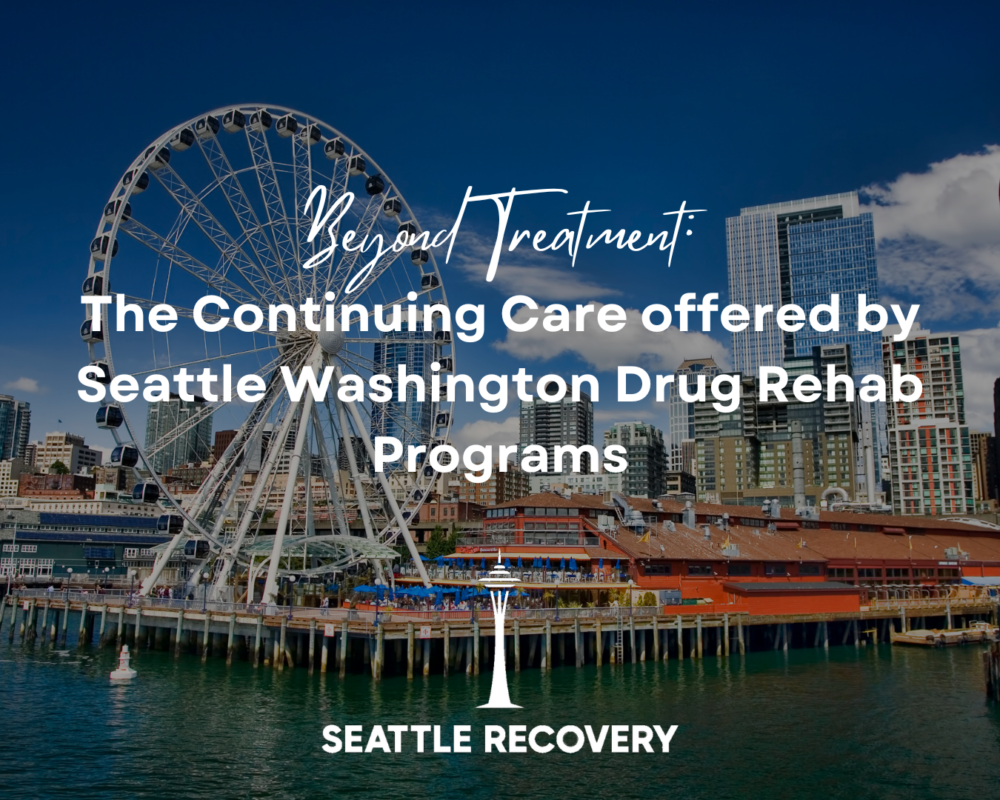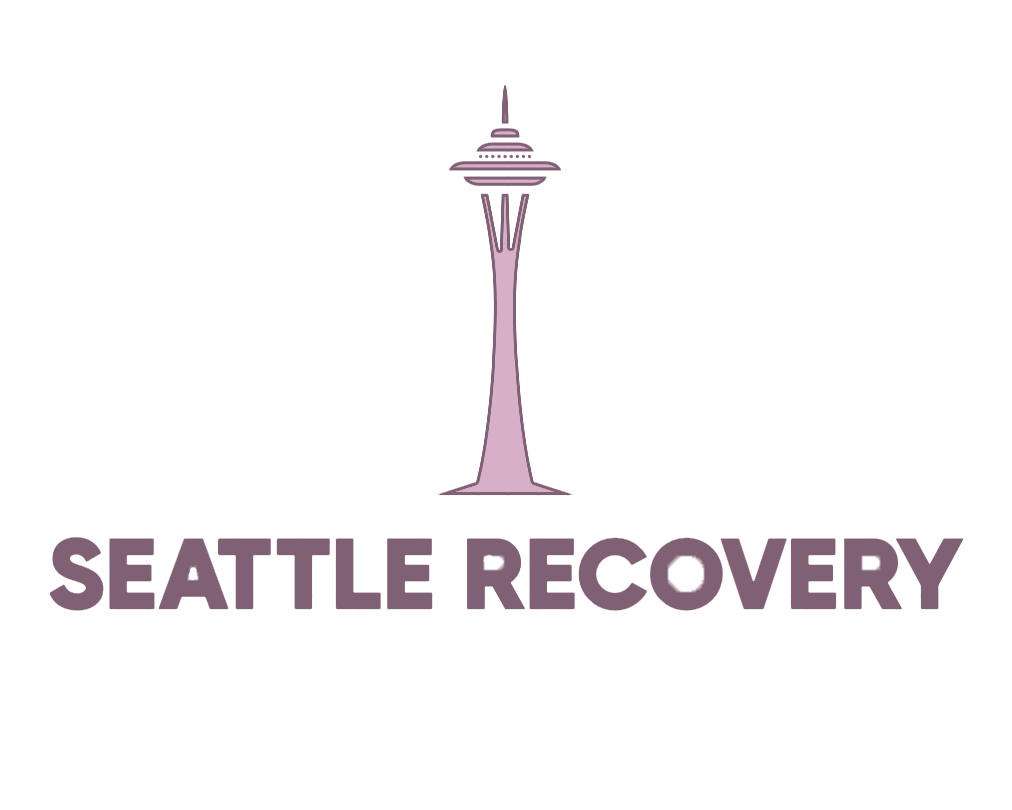When people think about drug rehab, they often focus on the initial stages of detox and inpatient treatment. Detoxification, therapy, and structured inpatient programs are vital to overcoming the physical and psychological grip of addiction. But here at Seattle Recovery, we know that the true journey to recovery begins when the structured environment of rehab is behind you. Recovery is a lifelong process that continues long after initial treatment, and that’s where our emphasis on continuing care comes in. Explore our Seattle Washington Drug Rehab Programs to support your ongoing journey.
Many individuals leave their initial rehab program with hope and optimism but face immense challenges as they reenter their everyday lives. It’s easy to fall back into old routines, environments, and relationships that can trigger relapse. Continuing care is what fills this gap, providing the long-term support, structure, and community needed to stay sober for life. This blog will explore how Seattle Washington drug rehab programs like ours go beyond treatment to ensure that individuals not only achieve sobriety but maintain it.
What is Continuing Care in Drug Rehab?
Continuing care refers to the comprehensive support systems that are put in place after someone finishes their primary treatment program. The focus of continuing care is on preventing relapse and offering sustained emotional, psychological, and social support as individuals transition back into their regular lives. While detox and inpatient rehab address the immediate concerns of addiction, continuing care addresses the long-term needs of individuals committed to staying sober.
Seattle Washington drug rehab programs, including our team at Seattle Recovery, offer a variety of continuing care options to help clients navigate the challenges of post-rehab life. These services can include outpatient therapy, sober living arrangements, support groups, vocational training, and family therapy, all of which play a crucial role in maintaining long-term recovery.
It’s important to recognize that addiction is a chronic condition, and much like diabetes or heart disease, it requires ongoing management and care. Continuing care is about maintaining the progress made during rehab and building on it for a lifetime of sobriety and well-being.
Why is Continuing Care Essential for Long-Term Recovery?
While the completion of an inpatient or residential program is a significant achievement, it’s only the first step on a long road to recovery. After the structured environment of rehab, individuals return to their regular lives, often facing the same stressors and triggers that contributed to their addiction in the first place.
Research shows that the period immediately following rehab is a high-risk time for relapse. According to the National Institute on Drug Abuse, 40% to 60% of individuals relapse after treatment, underscoring the importance of ongoing care and support. Without a proper continuing care plan in place, even the most determined individual can find themselves struggling to maintain sobriety.
At Seattle Recovery, we understand these challenges all too well. That’s why our Seattle Washington drug rehab programs prioritize continuing care to ensure each individual has the resources and support they need to not only get sober but to stay sober. The key elements of continuing care that contribute to long-term recovery success include:
- Ongoing Counseling and Therapy: Therapy doesn’t stop when rehab ends. Ongoing sessions with counselors help individuals process challenges, address underlying issues, and develop coping mechanisms.
- Accountability and Support: Structured continuing care programs provide a framework for accountability, where individuals regularly check in with their counselors and support groups to stay on track.
- Community Building: One of the most effective ways to prevent relapse is by staying connected with others who understand the challenges of addiction. Support groups and sober living homes create a supportive community of peers who are committed to staying sober together.
- Life Skills and Coping Strategies: Transitioning from rehab to everyday life can be difficult, but continuing care helps individuals develop and refine the skills they need to manage stress, deal with emotions, and maintain healthy relationships—all without turning to drugs or alcohol.
The Role of Outpatient Therapy in Continuing Care
Outpatient therapy is one of the cornerstones of continuing care in many Seattle Washington drug rehab programs, including ours at Seattle Recovery. Outpatient therapy allows individuals to live at home while continuing to receive professional support through regular therapy sessions.
At Seattle Recovery, our outpatient therapy program is designed to offer flexible yet comprehensive care, allowing individuals to maintain their jobs, care for their families, and meet other personal responsibilities while still receiving the support they need.
We offer two types of outpatient therapy:
- Individual Therapy: One-on-one therapy sessions provide a safe, confidential space to work through personal challenges. Individuals can address ongoing triggers, identify and resolve emotional issues, and receive personalized guidance to prevent relapse.
- Group Therapy: Group therapy offers a sense of community, allowing individuals to connect with others who are also on the path to recovery. It provides the opportunity to share experiences, offer support, and learn from the collective wisdom of the group.
Outpatient therapy is flexible, with sessions scheduled around each individual’s availability, allowing them to balance work, family, and other responsibilities while still prioritizing their recovery.
Support Groups: A Lifeline in Recovery
Another key component of continuing care is participation in support groups like Alcoholics Anonymous (AA), Narcotics Anonymous (NA), or other peer-led programs. These groups offer more than just a place to talk—they provide a network of accountability, understanding, and encouragement.
Here at Seattle Recovery, we encourage our clients to become involved in local support groups as part of their continuing care plan. These groups are particularly valuable because they offer:
- Shared Experience: Support groups consist of individuals who have been through similar experiences, making it easier to connect, empathize, and learn from one another.
- Accountability: Regular meetings keep individuals accountable for their sobriety, as they are expected to show up, participate, and stay engaged in their recovery.
- A Sober Network: One of the biggest challenges individuals face after rehab is finding new social connections that don’t involve drugs or alcohol. Support groups provide a built-in sober network that helps individuals create a new, healthy lifestyle.
- Ongoing Guidance: Support groups often follow structured programs, such as the 12-Step model, which offers a clear framework for long-term recovery.
Many Seattle Washington drug rehab programs, including Seattle Recovery, also offer in-house group therapy and support sessions, where clients can maintain their connections to our recovery community even after completing their initial treatment.

Sober Living Homes: A Safe Haven After Rehab
For many individuals, the idea of going straight from rehab back to their home environment can be daunting. Often, the same environments, relationships, and habits that contributed to addiction are still present. To provide a smoother transition, Seattle Recovery connects individuals with sober living homes as part of our continuing care services.
Sober living homes offer a structured, substance-free environment where individuals can live with others who are also committed to recovery. These homes provide a blend of independence and accountability, with house rules that support sobriety, such as curfews, drug testing, and mandatory attendance at recovery meetings.
Some of the benefits of sober living homes include:
- A Supportive Community: Living alongside others in recovery creates a built-in support system that can make the difference during difficult times.
- Structured Living: Sober living homes provide a routine and structure that helps individuals stay on track, without the pressures or triggers of their previous environment.
- Gradual Transition to Independence: Sober living homes bridge the gap between the highly structured environment of rehab and the independence of returning home, giving individuals time to develop the life skills and confidence they need to maintain their sobriety long-term.
Seattle Washington drug rehab programs, such as Seattle Recovery, partner with local sober living homes to ensure our clients have a safe and supportive place to live as they continue their journey toward recovery.
The Importance of Family Therapy in Continuing Care
Addiction is a family disease—it affects not just the individual struggling with substance abuse, but their loved ones as well. As part of our continuing care program at Seattle Recovery, we offer family therapy to help heal the relationships damaged by addiction and rebuild trust.
Family therapy provides a space where loved ones can openly discuss their concerns, ask questions, and gain a better understanding of addiction and recovery. It also helps families learn how to support their loved one’s sobriety while addressing their own emotional needs.
At Seattle Recovery, our family therapy sessions focus on:
- Education: Teaching families about the nature of addiction and recovery so they can better understand the challenges their loved one faces.
- Communication: Helping family members communicate effectively, express their feelings, and rebuild trust.
- Support: Offering guidance on how families can support their loved one without enabling their addiction, while also taking care of their own emotional health.
Family involvement is a critical component of continuing care, as a supportive and understanding family can make all the difference in long-term recovery.
Aftercare Planning: A Customized Roadmap for Recovery
Each individual’s journey through recovery is unique, which is why Seattle Recovery creates personalized aftercare plans for every client who completes our Seattle Washington drug rehab programs. These aftercare plans serve as a roadmap for long-term success, addressing the specific challenges, goals, and needs of each individual.
An aftercare plan typically includes:
- Scheduled Therapy Sessions: Whether it’s individual or group therapy, ongoing sessions ensure that individuals continue to receive professional guidance as they navigate life after rehab.
- Connections to Support Groups: Our aftercare plans include referrals to local support groups, ensuring that clients have a peer network to rely on.
- Crisis Management Strategies: Life is full of unexpected challenges, and our aftercare plans include strategies for managing stress, temptation, and difficult emotions without turning to substances.
- Personalized Goals: Each aftercare plan outlines the individual’s personal goals for sobriety, including milestones they want to achieve in their recovery journey.
By creating a customized aftercare plan, Seattle Recovery ensures that each client has the tools and resources they need to maintain their sobriety long after their initial treatment ends.
Relapse Prevention Strategies: Planning for the Unexpected
Relapse prevention is a key part of any continuing care plan. At Seattle Recovery, we understand that life is unpredictable and that individuals in recovery will face unexpected challenges. That’s why we focus on equipping our clients with tools and strategies to handle high-risk situations.
Our relapse prevention strategies include:
- Identifying Triggers: One of the first steps in relapse prevention is understanding the triggers that could lead to substance use. These could be environmental (places, people), emotional (stress, loneliness), or even physical (fatigue, illness). We work with clients to identify their unique triggers and create a plan for avoiding or managing them.
- Developing Coping Skills: Life will always come with its fair share of stressors. Through continued counseling and therapy, we help individuals build healthy coping mechanisms to deal with stress, anxiety, or temptation. This can include mindfulness techniques, relaxation exercises, and healthy outlets like exercise or creative hobbies.
- Building a Strong Support System: Staying connected to a sober community is essential in preventing relapse. Whether through family, friends, support groups, or outpatient therapy, having people to lean on in tough times makes all the difference. At Seattle Recovery, we help clients build and maintain these critical relationships.
By focusing on relapse prevention, our Seattle Washington drug rehab programs ensure that individuals are well-prepared for the unexpected challenges they may face as they move forward in their recovery journey.
Conclusion: The Lifelong Commitment to Recovery
At Seattle Recovery, we believe that recovery is a lifelong journey, not a one-time event. Our Seattle Washington drug rehab programs are designed to provide the ongoing support and resources that individuals need to stay sober for the long haul.
Continuing care—whether through outpatient therapy, sober living homes, family counseling, or support groups—is what helps individuals build the life skills, resilience, and community they need to maintain their sobriety. It’s about more than just getting sober—it’s about staying sober and living a fulfilling, drug-free life.
If you or a loved one are searching for effective Seattle Washington drug rehab programs, don’t hesitate to reach out to Seattle Recovery. We’re here to offer the comprehensive, compassionate care you need, both during treatment and long after. Visit our website at https://seattlerecovery.org/ or call us at (206) 231-0252.







